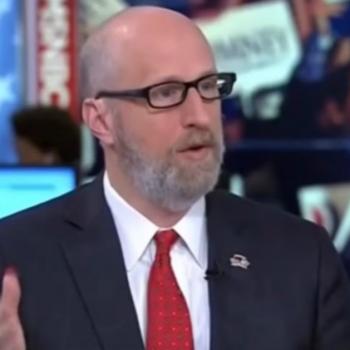In New York City, pastors like Tim Keller and philanthropy consultants have this idea that religion contributes to a healthy city. Mark Galli has written a four-part series on why the church’s mission is not to improve this world (though it may indirectly) but to worship and serve God. But Keller thinks a church builds up a city’s social capital. And Karl Zinmeister agrees:
Religiosity helped hone the American character, patterns of mutual aid, and national productivity. Today, however, belief is in decline, and many of those social benefits may disappear in tandem. In one generation, the portion of Americans affirming a religious affiliation has fallen from 95 percent to 76 percent. Just one out of three adults now attends religious services weekly. Young Americans, especially, are falling away: nearly four out of ten 18- to 29-year-olds say that they have no religious affiliation.
Even the nonreligious should worry about this shift, because society benefits from religiously inspired humanitarian behavior. Those with a religious affiliation give several times as much money to charity as other Americans. The ratio of Americans doing volunteer work in a typical week is 45 percent among weekly churchgoers and 27 percent among non-churchgoers. Decades of research have shown that a greater proportion of religious people get involved in community groups. They have stronger links with their neighbors and are more engaged with their families. They adopt troubled kids at three times the rate of other Americans, and they provide a disproportionate share of the assistance given to ex-convicts, refugees, the homeless, and others.
What this perspective misses is that outside certain community organizations, Protestants and Roman Catholics worship in separate churches. They don’t think they are on the same side, on Team Religion, thanks at least in part to the Reformation. Meanwhile, Jews and Christians worship on different days of the week and finding a common perspective on Jesus as the Messiah comes with several hurdles. Heck, even Baptists and Presbyterians have separate communions thanks at least to differences over baptizing babies.
So when will the proponents of religion’s contribution to social capital admit that religion subtracts from religious capital? Religion does not unite all religions. Specific religions divide the religious. So why the bait and switch?
J. Gresham Machen was on to this almost 100 years ago:
The same great change appears in community life. A new community, let us say, has been formed. It possesses many things that naturally belong to a well-ordered community; it has a drug-store, and a country club, and school. “But there is one thing,” its inhabitants say to themselves, “that is still lacking; we have no church. But a church is a recognized and necessary part of every healthy community. We must therefore have a church.” And so an expert in community church-building is summoned to take the necessary steps. The persons who speak in this way usually have little interest in religion for its own sake; it has never occurred to them to enter into the secret place of communion with the holy God. But religion is thought to be necessary for a healthy community; and therefore for the sake of the community they are willing to have a church.
Whatever may be thought of this attitude toward religion, it is perfectly plain that the Christian religion cannot be treated in any such way. The moment it is so treated it ceases to be Christian. For if one thing is plain it is that Christianity refuses to be regarded as a mere means to a higher end. Our Lord made that perfectly clear when He said: “If any man come to me, and hate not his father and mother . . . he cannot be my disciple” (Luke xiv. 26). Whatever else those stupendous words may mean, they certainly mean that the relationship to Christ takes precedence of all other relationships, even the holiest of relationships like those that exist between husband and wife and parent and child. Those other relationships exist for the sake of Christianity and not Christianity for the sake of them. (Christianity & Liberalism, 1923)












